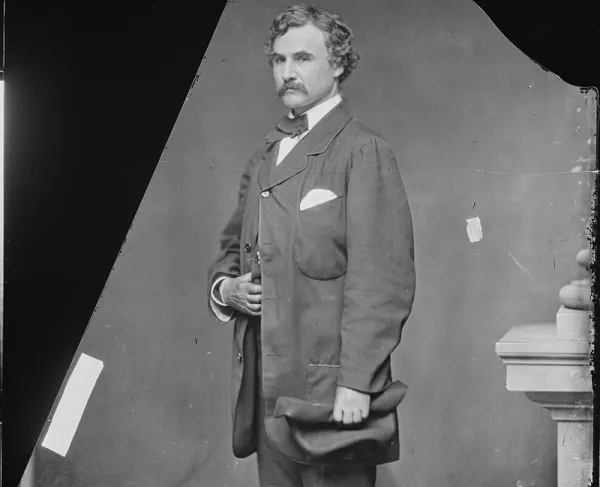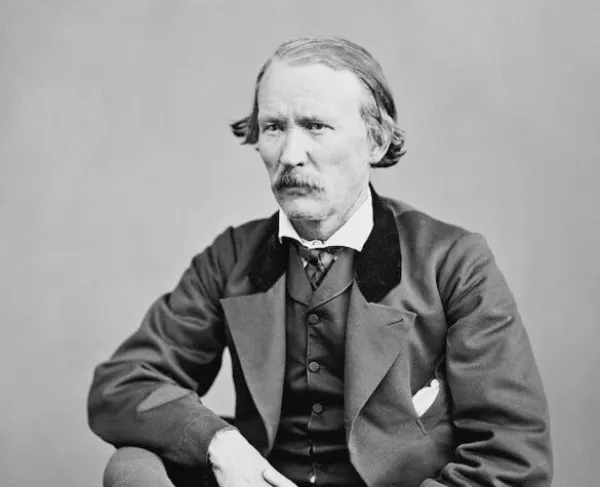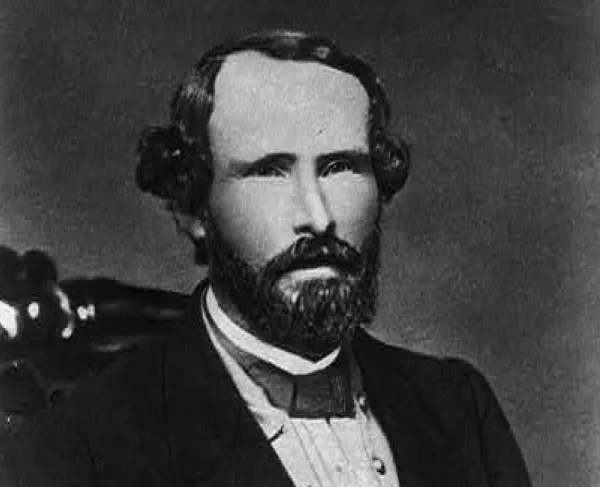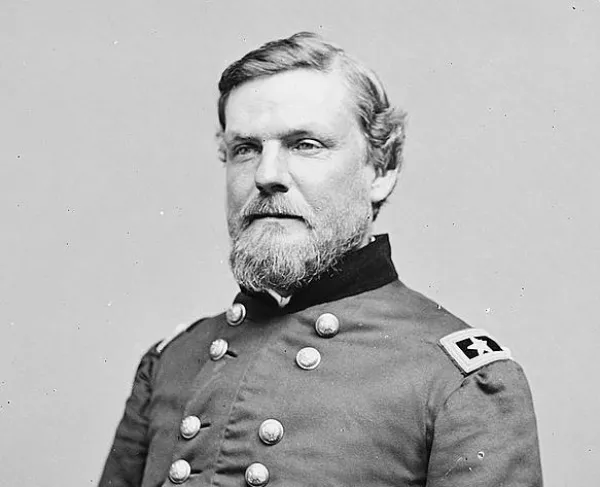Henry Winter Davis

Henry Winter Davis was a United States Representative, serving Maryland’s 3rd and 4th congressional districts. Davis was born in 1817, the son of Reverend Henry Lyon Davis, an episcopal clergyman. He was raised in Annapolis, Maryland, before graduating from Kenyon College in Ohio in 1837. He earned his law degree from the University of Virginia in 1841, and began practicing law in Virginia before settling in Baltimore, Maryland.
As a result of his inheritance, Henry Winter Davis was technically a slaveholder, despite holding firm anti-slavery views. Politically, Davis identified as a Whig until the party collapsed in the 1850s. Following the disintegration of the Whigs, Davis joined the Know Nothing Party, and won a seat under this affiliation in the House of Representatives from 1855 until 1861. Throughout the 1850s, Davis sought to remain impartial between the North and the South, refusing to join the Republican party. On one occasion, he sided with the Republican party, and was immediately asked to resign by the Maryland Legislature. Still refusing to officially choose a side, Davis declined the Republican request that he run for Vice President in the election of 1860. Instead, he supported the Constitutional Union ticket, John Bell and Edward Everett. It was largely due to his vote that Maryland did not secede from the Union. Davis was defeated in his efforts for re-election to the House in 1860.
Following the presidential election of Abraham Lincoln and the beginning of the Civil War, Henry Winter Davis finally identified as a Republican. In 1862, he was re-elected to the House of Representatives as a member of the Republican party. Despite Maryland’s position as a slaveholding border state, Davis soon became outspoken as a Radical Republican. From December 1863 to March 1865, Davis was the chairman of the Committee on Foreign Affairs, while also serving in the House. In this position, Davis began taking positions against President Lincoln, seeking involvement with France during its intervention in Mexico, a delicate relationship that was being handled privately by Lincoln and Secretary of State, William H. Seward.
As the Civil War raged on, Davis continued to criticize President Lincoln, especially regarding Lincoln’s plans for Reconstruction. Davis, along with other Radical Republicans, believed that Lincoln’s Reconstruction plans were too lenient, and far too merciful towards the Southern states. In February of 1864, Davis proposed a bill from his committee – the first formal congressional plan for Reconstruction – which would give Congress control over Reconstruction and hold the Confederate states accountable. This bill, called the Wade-Davis Bill, was written by Henry Winter Davis alongside his fellow Radical Republican, Senator Benjamin Wade. Stipulations in this bill included the disenfranchisement of Confederate civil and military officers and the abolition of slavery, among numerous other conditions. President Lincoln disapproved of this plan, as he believed in a more moderate plan to reunite and reconstruct the states.
Although the Wade-Davis Bill passed through both the House and the Senate, President Lincoln refused to sign it, and thereby ruined its chances of becoming law. Henry Winter Davis, despite Lincoln’s disapproval, was not willing to relent in his position. Davis and his bill cowriter, Benjamin Wade, denounced President Lincoln for intervening in what should be, in their opinion, congressional domain. In August 1864, Davis and Benjamin Wade issued a manifesto called "To the Supporters of the Government," which accused Lincoln of seeking to usurp power from Congress.
During the election of 1864, Davis initially supported Lincoln’s opposition, John C. Fremont. However, somewhat shockingly, Davis shifted his support to the incumbent President Lincoln. Even Lincoln seemed surprised by this shift, saying that “it has seemed to me recently that Winter Davis was growing more sensible to his own true interests and has ceased wasting his time by attacking me.” That same year, Davis joined the Unconditional Union party.
Henry Winter Davis lost his House seat in 1864, but was still a driving force behind the abolition of slavery in Maryland. His anti-slavery views remained prominent until the end of his life. Davis publicly supported the early enlistment and suffrage of Blacks in July 1865, before passing away in December of that same year, ensuring that some of his last living efforts were dedicated to establishing rights for Blacks.
Further Reading:
- The War Upon the President: The Manifesto of Henry Winter Davis and Benjamin Wade
-
The Radical and the Republican: Frederick Douglass, Abraham Lincoln, and the Triumph of Antislavery Politics By: James Oakes





